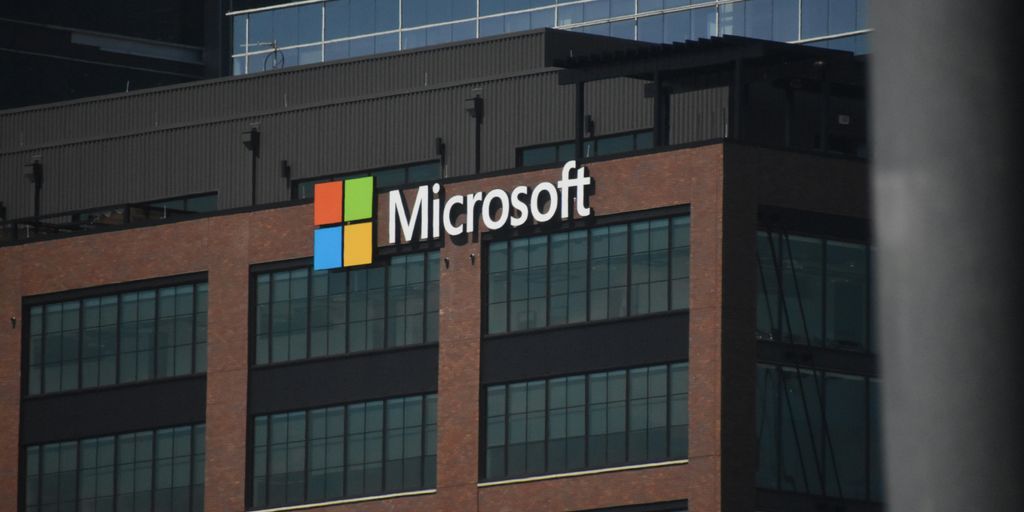The tech world is seeing a lot of job cuts lately, and it’s making people wonder about their careers. Big companies like Microsoft, Google, and Amazon have let go of many workers. This trend isn’t just in one place; it’s happening all over the world. It makes you think about how stable tech jobs really are. We’ll look at why these cuts are happening, focusing on Microsoft’s recent decisions. We’ll also see how people in tech are reacting and what this means for jobs in the future.
Key Takeaways
- Microsoft’s recent layoffs are part of a bigger trend in tech, with many companies reducing staff.
- Economic issues, hiring too many people during the pandemic, and a focus on AI are some reasons for these job cuts.
- The tech community is feeling a lot of worry, but also showing support for those affected.
- Job security in tech is changing, and workers need to think about new ways to build their careers.
- Even though there are layoffs, there are still growing areas in tech, and learning new skills is important for staying relevant.
Understanding the Microsoft Layoffs
Scale and Global Reach of Microsoft Layoffs
Okay, so Microsoft is doing another round of layoffs. It’s not a small thing either. We’re talking about a significant number of people losing their jobs, and it’s happening all over the world. These aren’t performance-based cuts like they did back in January; these are structural.
It’s hitting their headquarters hard, with a bunch of software engineering and product management roles gone. But it’s not just Redmond. They’ve got offices everywhere – India, the UK, Ireland – and all of those places are feeling the pinch. Even LinkedIn, which Microsoft owns, might see some restructuring. It’s pretty widespread. The Microsoft layoffs are affecting 3% of its workforce.
Factors Driving Microsoft’s Job Cuts
Why is this happening? Well, it’s a mix of things.
- First, there’s the whole economic uncertainty thing. Everyone’s being careful, and Microsoft wants to be lean in case things get worse. They want to be ready for anything.
- Second, remember how everyone went crazy hiring during the pandemic? Microsoft’s scaling back on that now. They hired a lot of people thinking the boom would last forever, but it didn’t. So, they’re correcting course.
- Third, AI is expensive. They’re pouring tons of money into AI, and that means cutting costs elsewhere. It’s all about priorities.
Basically, they’re trying to get more efficient and focus on what they think is important for the future.
The Role of AI in Microsoft’s Restructuring
AI is a huge deal for Microsoft right now. They’re betting big on it, and that’s driving a lot of their decisions. They need to free up resources to invest in AI, and that means making cuts in other areas. It’s not just about the money, though. AI is also changing the kind of skills they need. They might be letting people go in one area and hiring in another, all because of AI. It’s a big shift, and it’s impacting the whole industry. This is part of Microsoft’s strategic priorities and AI investment.
Broader Trends in Tech Layoffs

The Global Wave of Tech Layoffs
It’s not just Microsoft. The tech industry as a whole is seeing a lot of layoffs. Remember how everyone went crazy hiring during the pandemic? Well, now companies are realizing they might have overdone it. All those people working from home, buying stuff online – it made sense then, but things are different now. So, from late 2022 through 2025, we’ve seen wave after wave of layoff announcements. It’s a global thing, too. Doesn’t matter if you’re in Silicon Valley or somewhere in Europe or Asia. If a tech company has offices there, they’re probably affected. According to future of work, over 59,000 tech employees have lost their jobs in 2025 alone. It’s not just engineers either; recruiters, support staff, even some executives are getting the boot.
Economic Uncertainty and Post-Pandemic Adjustments
So, what’s causing all this? A bunch of things, really. The economy is shaky, and that makes companies nervous. High inflation, rising interest rates, and the possibility of a recession are making tech firms play it safe. They’re trying to protect their profits. Plus, a lot of companies are admitting they hired too many people during the pandemic boom. Now they’re scaling back those COVID-era expansions. Basically, those roles they added in 2020 and 2021 are now being reevaluated. It’s like they’re saying, "Oops, we went a little overboard."
Industry-Wide Cost-Cutting Measures
But there’s more to it than just the economy. A big part of it is the shift to AI. Tech companies are throwing tons of money at AI, but they’re also cutting costs in other areas to make up for it. AI and automation are supposed to make things more efficient, which means they can operate with fewer people. It’s a double-edged sword. They’re investing in the future, but people are losing their jobs in the process. Even Microsoft’s own Director of AI got laid off! That shows you how serious they are about restructuring. It’s like they’re streamlining things today so they can afford to invest in the technologies of tomorrow. Once one company starts cutting, others tend to follow. They see it as the smart thing to do in the current climate. It’s like a chain reaction of cost-cutting across the whole industry.
Reactions from the Tech Community

News about the Microsoft layoffs, and the general trend of companies downsizing, has really made waves in the tech world. You see a mix of reactions – shock, definitely some sympathy, a bit of frustration, and a whole lot of debate. People are talking about it everywhere, especially on social media and LinkedIn. It’s interesting to see how everyone’s processing it all.
Employee Morale and Public Discourse
One thing that’s been really noticeable is the conversation around job security versus high pay. Someone on X (formerly Twitter) mentioned how her cousin’s brother, who worked at Microsoft, got laid off. It sparked a whole discussion about whether it’s better to have a stable government job or chase the big bucks in tech. It’s a tough question, and there’s no easy answer. People are really thinking about what they value most in their careers right now. It’s a good time to consider career transition.
Anxiety Versus Stability in Tech Careers
There’s definitely a sense of anxiety in the tech community right now. It feels like no job is 100% safe, no matter how good you are or how well the company is doing. Even high-level people are getting cut, which sends a pretty clear message. People who thought they had a job for life are now rethinking things. Some are even considering different career paths altogether. But there’s also a feeling of everyone being in this together. People are offering support and trying to help each other out. It’s a mix of emotions, for sure.
Community Support and Networking
It’s cool to see how the tech community is stepping up to support those who were laid off. People are offering referrals, reviewing resumes, and just generally trying to help each other find new jobs. Like, I saw one engineer publicly offering to refer people. That’s the kind of stuff that makes you feel good, you know? Even though companies are making these tough decisions, the tech community is showing a lot of compassion. It’s a reminder that even in a competitive industry, people are willing to help each other out. It’s a good idea to check out some networking tips.
Impact on Tech Job Security
Reevaluating Job Security in Big Tech
Microsoft’s recent layoffs, impacting thousands, have definitely shaken things up in the tech world. It’s made a lot of people rethink the idea of job security, especially at those big-name companies. Remember when everyone thought landing a job at Google or Microsoft meant you were set for life? Well, those days seem to be fading fast. We’re seeing a shift in mindset, with more people realizing that even the most coveted positions can disappear overnight. This has sparked conversations about the trade-offs between high-paying tech jobs and the stability of other sectors, like government roles. AI’s impact is a big part of this, as companies restructure and prioritize new technologies.
The Shifting Landscape of Tech Employment
The tech job market isn’t what it used to be. After years of crazy growth, many companies are now in what they call "retrenchment mode." During the pandemic, they hired like crazy to keep up with the demand as everyone moved online. But now that things are settling down, they’re realizing they might have overdone it. This has led to a wave of layoffs across the industry, affecting everyone from software engineers to executives. It’s not just happening in Silicon Valley either; it’s a global thing. This means that if you’re in tech, you need to be ready to adapt. Having up-to-date skills is more important than ever. People are starting to view their careers as more fluid and self-driven, always keeping an eye on the horizon and having a backup plan.
Long-Term Implications for Tech Professionals
So, what does all this mean for the future of tech professionals? Well, for starters, the job market is more competitive than ever. With so many talented people suddenly looking for work, it might take longer to land your next role. But it’s not all doom and gloom. There are still plenty of opportunities out there, especially in areas like cybersecurity, AI research, and cloud services. The key is to focus on building skills that are in demand and being adaptable. Some people are even using this as an opportunity to start their own ventures or explore alternative career paths. The tech industry is always evolving, and while layoffs can be tough, they can also open doors to new and exciting possibilities. It’s a time to recalibrate expectations and priorities, and to build a resilient career that can weather any storm. The tech layoffs are a harsh reminder that nothing is guaranteed, but they also highlight the importance of continuous learning and adaptability.
Strategic Shifts and Future Outlook
Microsoft’s Strategic Priorities and AI Investment
Microsoft’s recent moves, including the layoffs, really highlight where they’re putting their focus: AI. It’s not just about cutting costs; it’s about reallocating resources to areas they see as crucial for future growth. This means a big push into AI development and integration across their product lines. They’re betting big on AI to drive innovation and stay competitive. This also mirrors what Google is doing, investing heavily in AI while restructuring their workforce.
Right-Sizing the Industry for Innovation
The tech industry is going through a period of adjustment. The rapid growth of the past decade led to some bloat, and now companies are trying to "right-size" themselves. This involves streamlining operations, cutting underperforming projects, and focusing on core competencies. It’s a painful process, but the goal is to create a leaner, more agile industry that’s better positioned for future innovation. It’s like when Amazon suspends PrimeAir drones – a sign of broader shifts in operational methods.
The Paradox of Layoffs Amidst Profitability
It might seem strange that companies are laying off employees even when they’re profitable. But this is actually pretty common. Companies are under pressure to constantly improve efficiency and increase shareholder value. Sometimes, that means making tough decisions about the workforce, even if the company is doing well overall. It’s a paradox, but it reflects the intense competition and constant pressure to innovate in the tech world. To address employee morale, companies need transparency and support programs.
Adapting to Industry Changes
Upskilling and Reskilling for New Opportunities
Okay, so things are changing fast. It feels like one minute you’re comfortable, and the next, the ground is shifting beneath your feet. The layoffs at Microsoft and other big tech companies are a wake-up call. The best way to stay relevant is to constantly learn new things.
- Take online courses. There are tons of them out there, many are even free. Focus on areas like AI, machine learning, and cloud computing. These are the skills that companies are looking for right now.
- Attend workshops and conferences. It’s not just about learning; it’s about networking. You never know who you’ll meet or what opportunities might come your way. Plus, it’s a good way to stay up-to-date on the latest trends. Check out some AI proliferation courses.
- Get certifications. A certification shows employers that you’re serious about your skills and that you’ve put in the work to master them. It’s a tangible way to prove your knowledge.
Exploring Alternative Career Paths
Maybe it’s time to think outside the box. Not everyone is cut out for the cutthroat world of big tech. There are plenty of other options out there. Some people are thinking about switching to industries that are more stable, like healthcare or education tech. It’s all about finding a place where you feel secure and valued. Don’t be afraid to explore different paths. Maybe you’ll find something you love even more than your current job. It’s a good idea to have a tech recruiting platform ready.
Identifying Growth Niches in Tech
Even with the layoffs, there are still plenty of opportunities in tech. You just have to know where to look. Certain areas are booming, like cybersecurity, AI, and data analytics. These are the fields that are driving innovation and growth. If you can develop skills in these areas, you’ll be in high demand. It’s all about finding your niche and becoming an expert in it. Think about what you’re good at and what you enjoy, and then find a way to combine those things into a career that’s both fulfilling and lucrative. The job market is on the verge of diversification.
Conclusion
So, what’s the big takeaway from all this? Microsoft’s recent job cuts, and the many others we’ve seen, really show how much the tech world is changing. It’s not just about companies saving money; it’s also about new tech like AI shaking things up. For people working in tech, it means things are a bit uncertain right now. But it also means there are new chances to learn and grow. The tech community is pretty good at helping each other out when times are tough, which is a good thing. If you’re in tech, staying sharp and ready for what’s next is probably a smart move.
Frequently Asked Questions
Why did Microsoft have layoffs?
Microsoft let people go because of a few reasons: they hired too many folks during the pandemic, they want to cut costs, and they’re putting a lot of money into new areas like Artificial Intelligence, which changes how much staff they need.
Are other tech companies also laying off employees?
Yes, many other big tech companies like Google, Meta, and Amazon have also cut jobs recently. It’s a common trend across the tech world.
What does this mean for job security in tech?
The tech industry is changing. While some jobs are less secure, new opportunities are popping up in areas like AI and cybersecurity. It means people might need to learn new skills to stay competitive.
How has the tech community reacted to these layoffs?
The tech community has shown a lot of support. People are helping each other find new jobs, sharing advice, and offering referrals.
What should someone do if they get laid off from a tech job?
For those affected, it’s smart to update your resume, learn new skills, and look into different job paths, maybe even in growing parts of tech or other industries.
How does AI play a role in these job changes?
AI is a big reason for the changes. Companies are investing heavily in AI, which can make some jobs easier or even replace them, leading to a shift in the types of roles needed.












